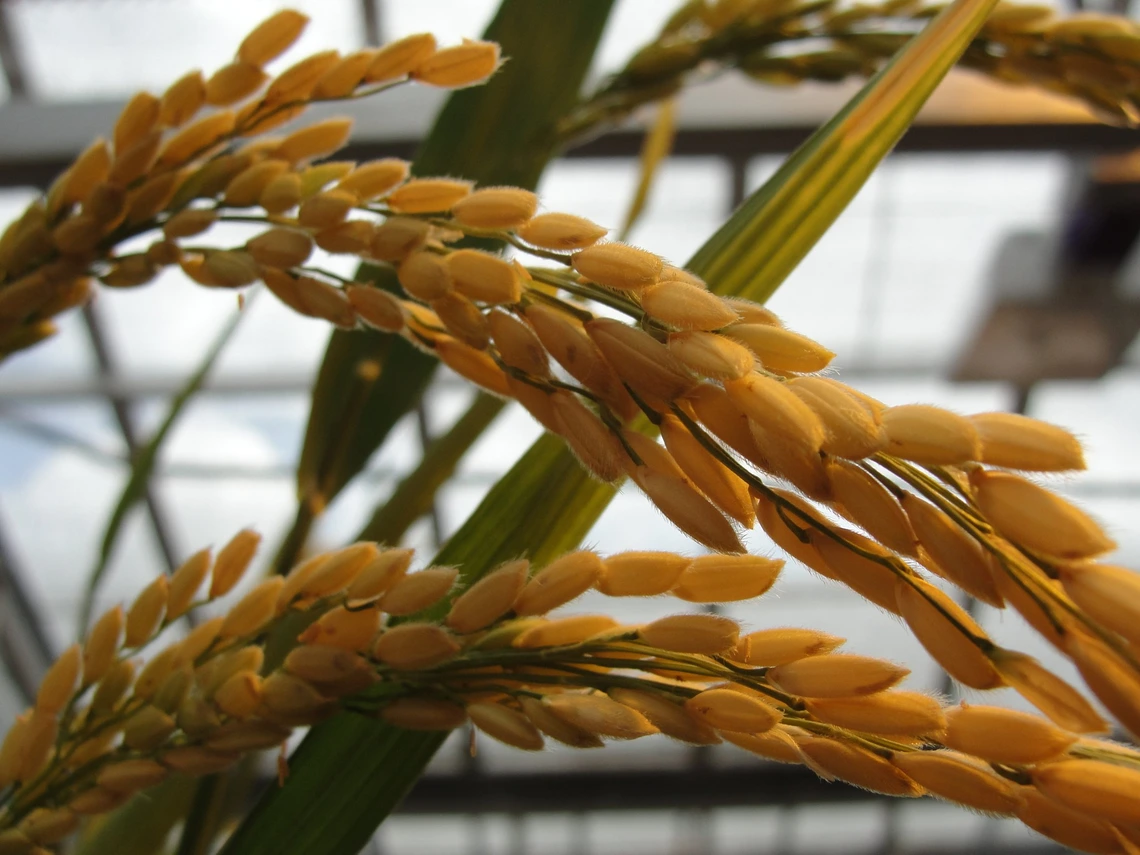International group of researchers from the USA, UK, and the Philippines receives BBSRC-NSF funding to improve rice genome annotation.

Researchers from Oregon State University and the University of Arizona in the USA, University of Liverpool and EMBL’s European Bioinformatics Institute (EMBL-EBI) in the UK, and CGIAR’s International Rice Research Institute in the Philippines were awarded a three-year international project funding by the joint panel of the National Science Foundation (NSF, USA) and the Biotechnology and Biological Sciences Research Council (BBSRC, UK).
According to Pankaj Jaiswal, Professor in the Department of Botany and Plant Pathology and NSF project PI from Oregon State University (OSU), the project titled, CIBR:BBSRC: PanOryza: Globally coordinated genomes, proteomes, and pathways for rice, will re-establish international coordination to streamline, standardize and annotate the function and structure of genes identified by various independent efforts on sequencing the genomes of cultivated rice and wild relatives. Since rice is a staple for about 50% of the human population that continues to grow, it is essential to tap into the diversity of rice varieties representing a wider pool of landraces and wild rice species that carry desirable genes and traits for local adaptation, resistance to diseases, and tolerance to periodic droughts, flooding, high temperatures and high salt in their existing cultivated environment.
Therefore, a significant effort in international coordination between Plant scientists, breeders, data managers, and bioinformaticians is required to develop a common framework to assimilate, standardize, and annotate the publicly available rice genomes and make these datasets freely available under FAIR data principles. ‘Our project’s outcomes will "future-proof" rice genomic resources so that researchers can focus their efforts on understanding the biology of rice and searching for desirable traits that span the genetic diversity of cultivated Asian rice.’ Prof. Joseph (Joey) Spatafora, Head of the Department of Botany and Plant Pathology at Oregon State University, said “PanOryza exemplifies the collaborative and interdisciplinary research in agricultural data sciences that needs to occur in order to provide the World’s growing population with a safe and nutritious food supply.”
According to Andy Jones, leader of the BBSRC-funded part of the project from the University of Liverpool, UK, the team will develop evidence-based approaches to build a pan-gene atlas for rice.
Rod Wing, Regents Professor and co-PI from the University of Arizona, will be responsible for coordinating the annotation of 16 wild Oryza species genomes sequenced by his iOMAP consortium.
Ken McNally, a Senior Scientist at the International Rice Research Institute, Philippines, will be integrating the genetic diversity dataset from the 3000 rice genome project and annotating the associations to gene function and structure for applications in functional genomics and improving quality and stress tolerance via plant breeding.
Jaiswal lab at OSU will carry out functional annotation of rice genes and their role in biological processes essential for optimal adaptation, development, and improving yield. His lab will integrate the data in the Planteome Ontology and Plant Reactome portals.
Bruno Contreras-Moreira and María Jesús Martín lead researchers and project collaborators from the Ensembl Plants and UniProt databases at the EMBL-EBI, UK, in partnership with the NSF-Funded Gramene project, will establish public access to the high-quality data sets and common access database for rice researchers.
View the original article in the Oregon State University website.

